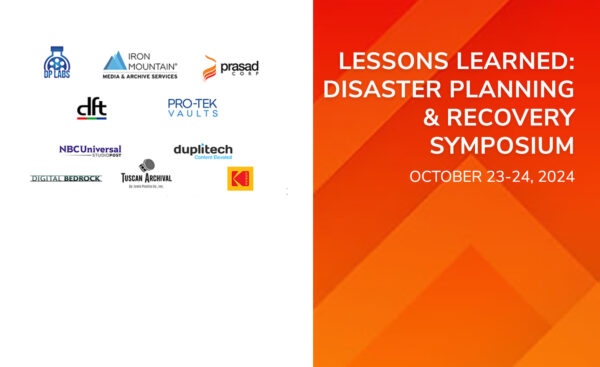

October 23: 9:00am – 12:30pm (Pacific)
October 24: 9:00am – 12:30pm (Pacific)
Archives are at risk all over the world, facing simultaneous and multitiered challenges, from the impacts of climate change and natural disasters, to lack of adequate funding, political changes, and conflict zones. Everything is happening everywhere all at once it seems. Being proactive and having plans in place in the event of a disaster is critical. But, when disaster hits, dealing with the aftermath and recovery takes on a life of its own.
How do we take those lessons and make our next plan a better one? What can we learn from those who have been through the impact and the recovery? Lessons Learned: Planning for Disasters and Recovery will feature presentations and open discussions sharing information that we can learn from to better prepare and to help us identify gaps in the resources available.
The symposium will include keynote speakers, case studies, reports from the field, closing each day with an interactive open forum, inviting speakers and the audience to offer their insights.
Symposium chairs: Caroline Rubens, Chad Hunter, and Rachael Stoeltje.
Speakers will include …
Keynote: After the Squall has Landed
The magnitude of recovery after any disaster always has an impact and how this impact can be harnessed for positive action, better policies, or a push toward a change in mindset, is at the crux of this presentation. What used to be considered separately (risk management, disaster recovery, impact to the environment), should and must be regarded concertedly together for archives to be viable in the long-term. This keynote extracts notable ideas from across certain industries and examines the actions taken by archives in the Asia-Pacific region to present some lessons learned from dealing with the disasters they encountered.

Are Your Rubber Boots High Enough?
Disaster planning and recovery resources for audio-visual archives are getting more commonly available as we face more frequent disasters. Archivists, service providers and organizations are putting their knowledge and experience in common to avoid and minimize the impact of disasters on collections. Most of these resources are of a technical nature and focus on the actions to be taken to prevent, react to and mitigate disasters. Some resources do mention the human angle of disaster recovery, but there seems to be a gap between the guidelines available and the reality on the terrain. For example, disaster recovery kit lists always list necessities to handle objects but seldom human necessities beyond masks and gloves. Our recent floods have taught us that we need to put the human needs in the center of the picture. No more wading in a flooded vault with wet feet, longing for drink water…

Permanencia Voluntaria – From Ruin to Revival
From demons, ghosts and vampires to Martians, mad scientists and spurned lovers, the heroes and heroines of 20th-century Mexican popular cinema faced more than their share of enemies. Few foes, however, have proved quite as formidable as the combined adversaries of time, critical snottiness, and oblivion – not to mention an earthquake from 2017.

Beyond the Plan: Addressing the Human Impact in Collections Disaster
Response Collection emergencies caused by extreme weather events, such as hurricanes and floods, are not isolated incidents—they often coincide with personal disasters for the staff responsible for recovery. Traditional disaster plans emphasize immediate institutional recovery, overlooking the fact that staff may be dealing with damaged homes, power outages, and safety concerns, which can delay or complicate response efforts. Based on recent extreme weather events in Houston, this presentation highlights the gap in current disaster planning and argues for a more holistic approach that incorporates staff care. By addressing the personal side of collection emergencies, we can create more realistic, sustainable recovery protocols.

High Muddy Water: Saving a Century of Appalachian Media
Caroline Rubens and Chad Hunter recount the flooding of the Appalshop Archive in eastern Kentucky in July 2022, and share lessons learned on storage, labeling and managing people during and after the crisis. Established in 2002, the Appalshop Archive holds the largest collection of Appalachian audiovisual materials in the world.

Preparedness and Response Across California
As the California “Ready – Or Not” Cultural Heritage Disaster Preparedness project continues in its third year, with over 300 on-site emergency preparedness consultations completed with cultural heritage organizations in all regions of California, there have been numerous lessons learned in disaster preparedness. The project’s consultants discussed with many organizations the realities of disaster response and recovery after earthquakes, atmospheric rivers, wildfires, and landslides. This presentation will encourage the audience to consider deeper issues related to natural and man-made disasters that affect their building, collections, and people.

A Frozen Summer: The 2018 Leak at the Cinémathèque québécoise
In the summer of 2018, water leaked in the frozen film vault at the Cinémathèque québécoise and covered in ice hundreds of our collection’s most precious elements. This presentation will discuss the work done during the disaster to save the films and how this event made us reflect on our practices and improve them to ensure that our team would be better prepared to handle such disasters.

Disaster Preparedness and Recovery for Audio-Visual Archives
Are you fully prepared for any disaster that might strike? Do you have a well-rehearsed plan ready to swing into action when the water pipes burst or the wildfires approach? For too many, disaster preparedness is a tiresome duty, elbowed out of the way by more pressing needs. But sooner or later, it will happen to your AV collection, and then it will be too late. A disaster can wipe out a poorly prepared collection in a moment! This handbook, from the International Federation of Film Archives, is here to help everyone whose disaster preparedness is not up to scratch.
 Keynote Speaker: Olena Honcharuk is the acting director of the Oleksandr Dovzhenko National Centre, the Ukrainian state film archive. The organization is a center for film conservation, a research and presenting institution, a film museum, mediatheque, and art cluster all under the same roof. Olena began at Dovzhenko Centre as exhibition manager, then later joined the creation of the Film Museum and lately became its leader. Her museum career began in 2013 in museum communications at the National Art Museum of Ukraine. Olena firmly believes that the voice of cultural and liberal institutions should be more audible, more powerful to shape and support values, thus contributing to society’s development.
Keynote Speaker: Olena Honcharuk is the acting director of the Oleksandr Dovzhenko National Centre, the Ukrainian state film archive. The organization is a center for film conservation, a research and presenting institution, a film museum, mediatheque, and art cluster all under the same roof. Olena began at Dovzhenko Centre as exhibition manager, then later joined the creation of the Film Museum and lately became its leader. Her museum career began in 2013 in museum communications at the National Art Museum of Ukraine. Olena firmly believes that the voice of cultural and liberal institutions should be more audible, more powerful to shape and support values, thus contributing to society’s development.

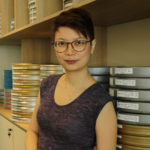 Keynote Speaker: Karen Chan joined the Asian Film Archive (AFA) in 2006, becoming Executive Director in 2014. Under her leadership, the AFA has created new life and access for film collections. From commissions to collaborations, the AFA is an innovative platform for interdisciplinary dialogue, learning and discovery. Karen teaches about film literacy and preservation, writing about AV archiving to highlight the value of film as heritage. She is serving a second term as President of Southeast Asia-Pacific Audiovisual Archive Association (SEAPAVAA) and is the current Chair of the Co-ordinating Council of Audiovisual Archives Associations (CCAAA).
Keynote Speaker: Karen Chan joined the Asian Film Archive (AFA) in 2006, becoming Executive Director in 2014. Under her leadership, the AFA has created new life and access for film collections. From commissions to collaborations, the AFA is an innovative platform for interdisciplinary dialogue, learning and discovery. Karen teaches about film literacy and preservation, writing about AV archiving to highlight the value of film as heritage. She is serving a second term as President of Southeast Asia-Pacific Audiovisual Archive Association (SEAPAVAA) and is the current Chair of the Co-ordinating Council of Audiovisual Archives Associations (CCAAA).

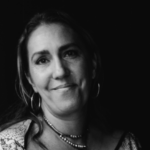 Viviana García Besné is a Mexican filmmaker, archivist, and passionate advocate for popular Mexican cinema. A descendant of the Calderón family, which played a pivotal role in Mexico’s film industry for over seven decades, García Besné has dedicated herself to preserving and reappraising the country’s “cine popular” – films that were once scorned but beloved by working-class audiences. In 2014, after the closure of Cinematográfica Calderón, she discovered a treasure trove of forgotten movies and documents. This inspired her to found the Permanencia Voluntaria archive. Through her work, García Besné challenges the cultural snobbery often directed at these films and highlights their value as cultural, social, and historical artifacts. Despite numerous challenges, including earthquakes and funding difficulties, García Besné continues to fight for the recognition and preservation of this unique cinematic heritage. Recently, her efforts have gained new momentum, with the National Film Preservation Fund. financing her latest restoration project, Santa (1931), considered the first sound film in Mexican cinema.
Viviana García Besné is a Mexican filmmaker, archivist, and passionate advocate for popular Mexican cinema. A descendant of the Calderón family, which played a pivotal role in Mexico’s film industry for over seven decades, García Besné has dedicated herself to preserving and reappraising the country’s “cine popular” – films that were once scorned but beloved by working-class audiences. In 2014, after the closure of Cinematográfica Calderón, she discovered a treasure trove of forgotten movies and documents. This inspired her to found the Permanencia Voluntaria archive. Through her work, García Besné challenges the cultural snobbery often directed at these films and highlights their value as cultural, social, and historical artifacts. Despite numerous challenges, including earthquakes and funding difficulties, García Besné continues to fight for the recognition and preservation of this unique cinematic heritage. Recently, her efforts have gained new momentum, with the National Film Preservation Fund. financing her latest restoration project, Santa (1931), considered the first sound film in Mexican cinema.

 Peter Brothers is the CEO of SPECS BROS., LLC, a magnetic tape restoration and remastering laboratory that specializes in disaster recovery. Since its founding 41 years ago, SPECS BROS. has processed over 500,000 tapes from virtually every corner of the world. Peter is one of the pioneers in magnetic tape disaster recovery, considered by many to be a premier expert in the field. Peter has consulted for broadcasters, museums, academic institutions and government agencies. He is also one of the primary authors of the published national and international standards on magnetic tape handling and magnetic tape storage.
Peter Brothers is the CEO of SPECS BROS., LLC, a magnetic tape restoration and remastering laboratory that specializes in disaster recovery. Since its founding 41 years ago, SPECS BROS. has processed over 500,000 tapes from virtually every corner of the world. Peter is one of the pioneers in magnetic tape disaster recovery, considered by many to be a premier expert in the field. Peter has consulted for broadcasters, museums, academic institutions and government agencies. He is also one of the primary authors of the published national and international standards on magnetic tape handling and magnetic tape storage.

Catherine Cormon is Head of Collection Management and Registrar at Eye Filmmuseum in Amsterdam since 2013. She is in charge of the team responsible for acquisition, selection, registration and preventive conservation of analog films. She is also supervising access to the analog film collection, which comprises 250 000 items representing about 120 000 film prints and 40 000 unique titles. Her previous positions include Registrar, Print Coordinator and Collection Specialist at Eye Filmmuseum (Formerly Netherlands Filmmuseum), Audio-visual Archivist for the Heineken Collection Foundation in Amsterdam and Film Preservationist for Memoriav in Switzerland. She is also a defector of film editing who decided to keep working with analog film when everything went digital and trained at the Selznick School of Film Preservation to follow the reels into the archives.

 Hillary Ellis leads NEDCC Northeast Document Conservation Center’s “Ready—or Not” Cultural Heritage Disaster Preparedness Project, an initiative to assess emergency preparedness at California organizations that care for cultural and historic resources. In this role, Hillary supervises a state-wide team of consultants and conducts on-site emergency preparedness assessments. She has conducted 42 emergency preparedness assessments at libraries, archives, museums, historical societies, state parks, and Native American organizations. The project is supported in whole or in part by funding provided by the State of California, administered by the California State Library. Hillary holds an MA of Art Conservation, Paintings, from Queen’s University. Prior to her tenure at NEDCC, she worked as a conservator in private practice. Most recently Hillary served as Director of Conservation at the Strong National Museum of Play, where she assisted with updating the disaster plan, developed a digital preservation policy, and worked to improve collections environmental monitoring and storage conditions. Hillary is a Professional Associate of the American Institute for Conservation (AIC).
Hillary Ellis leads NEDCC Northeast Document Conservation Center’s “Ready—or Not” Cultural Heritage Disaster Preparedness Project, an initiative to assess emergency preparedness at California organizations that care for cultural and historic resources. In this role, Hillary supervises a state-wide team of consultants and conducts on-site emergency preparedness assessments. She has conducted 42 emergency preparedness assessments at libraries, archives, museums, historical societies, state parks, and Native American organizations. The project is supported in whole or in part by funding provided by the State of California, administered by the California State Library. Hillary holds an MA of Art Conservation, Paintings, from Queen’s University. Prior to her tenure at NEDCC, she worked as a conservator in private practice. Most recently Hillary served as Director of Conservation at the Strong National Museum of Play, where she assisted with updating the disaster plan, developed a digital preservation policy, and worked to improve collections environmental monitoring and storage conditions. Hillary is a Professional Associate of the American Institute for Conservation (AIC).

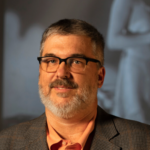 Chad Hunter is a media archivist with the Appalshop Archive, and director of the Pittsburgh Silent Film Society & Festival. He previously worked as an archivist at George Eastman Museum in Rochester, NY, and at musician Peter Gabriel’s human rights organization WITNESS in New York City, and was a founding archivist of the Appalshop Archive in Whitesburg, Kentucky in 2005. He co-founded Home Movie Day and the Center for Home Movies in 2003, and Silent Movie Day in 2021.
Chad Hunter is a media archivist with the Appalshop Archive, and director of the Pittsburgh Silent Film Society & Festival. He previously worked as an archivist at George Eastman Museum in Rochester, NY, and at musician Peter Gabriel’s human rights organization WITNESS in New York City, and was a founding archivist of the Appalshop Archive in Whitesburg, Kentucky in 2005. He co-founded Home Movie Day and the Center for Home Movies in 2003, and Silent Movie Day in 2021.

 Eva Létourneau is a moving image archivist, curator, and filmmaker. She has been the film and audiovisual conservation manager at the Cinémathèque québécoise since 2020 and a co-organizer and programmer at the Montreal Underground Film Festival since 2018. She has an M.A. in Film and Photography Preservation and Collections Management from Toronto Metropolitan University.
Eva Létourneau is a moving image archivist, curator, and filmmaker. She has been the film and audiovisual conservation manager at the Cinémathèque québécoise since 2020 and a co-organizer and programmer at the Montreal Underground Film Festival since 2018. She has an M.A. in Film and Photography Preservation and Collections Management from Toronto Metropolitan University.

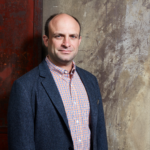 James Mockoski received his B.A. in Film/Video from UCSC and graduated with a M.A. in Film Archiving from the University of East Anglia. In 2002, he joined Francis Ford Coppola’s company, American Zoetrope as their Film Archivist and he has supervised the restorations of some classic films such as Apocalypse Now, The Conversation, Outsiders, and Stop Making Sense. He also oversees the Coppola Family Archive of Costumes and memorabilia, including the Museum Collection held at Inglenook Winery and Francis Coppola Winery in Geyserville.
James Mockoski received his B.A. in Film/Video from UCSC and graduated with a M.A. in Film Archiving from the University of East Anglia. In 2002, he joined Francis Ford Coppola’s company, American Zoetrope as their Film Archivist and he has supervised the restorations of some classic films such as Apocalypse Now, The Conversation, Outsiders, and Stop Making Sense. He also oversees the Coppola Family Archive of Costumes and memorabilia, including the Museum Collection held at Inglenook Winery and Francis Coppola Winery in Geyserville.

Caroline Rubens is a media archivist with extensive experience in audiovisual and photographic collections. She most recently served as the Archivist and Archive Director at the media arts center Appalshop, where she managed the preservation, cataloging, and expansion of its collections. In this role, she also led public engagement projects, including film screenings, multimedia exhibits, and community events like Letcher County Home Movie Day, Community Digitization Day, and a found footage filmmaking workshop. Previous to Appalshop, Caroline worked as a media archivist and researcher with organizations such as the Rhode Island Historical Society, Mercer Media, the History Channel, and the former New York Center for Visual History. She holds a Master’s degree in Moving Image Archiving and Preservation from New York University.

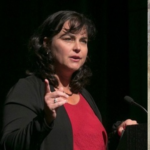 Rachael Stoeltje is the Founding Director of the IU Libraries Moving Image Archive and the President of the Association of Moving Image Archivists (AMIA). She previously served on the FIAF (International Federation of Film Archives) Executive Committee and teaches Moving Image Preservation at Indiana University. She participants in local and international training and outreach events and initiatives, dedicates herself to mentoring burgeoning archivists in the field and works to bridge the global archival communities in an effort to address our shared challenges.
Rachael Stoeltje is the Founding Director of the IU Libraries Moving Image Archive and the President of the Association of Moving Image Archivists (AMIA). She previously served on the FIAF (International Federation of Film Archives) Executive Committee and teaches Moving Image Preservation at Indiana University. She participants in local and international training and outreach events and initiatives, dedicates herself to mentoring burgeoning archivists in the field and works to bridge the global archival communities in an effort to address our shared challenges.

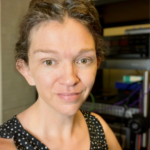 Emily Vinson is the Preservation Coordinator at the University of Houston Libraries. Prior to UH, Emily worked as an archivist at Rice University’s Baker Institute for Public Policy; a project archivist preserving unique audio recordings at New York Public Radio; and a fellow in the Preservation Division of New York Public Library. She holds an MS in Information Studies with a Certificate of Advanced Studies in Preservation Administration from the University of Texas, Austin. Emily is active in the Association of Moving Image Archivists and is member of the National Heritage Responders network and on the board of Texas Collections Emergency Resource Alliance (TX-CERA).
Emily Vinson is the Preservation Coordinator at the University of Houston Libraries. Prior to UH, Emily worked as an archivist at Rice University’s Baker Institute for Public Policy; a project archivist preserving unique audio recordings at New York Public Radio; and a fellow in the Preservation Division of New York Public Library. She holds an MS in Information Studies with a Certificate of Advanced Studies in Preservation Administration from the University of Texas, Austin. Emily is active in the Association of Moving Image Archivists and is member of the National Heritage Responders network and on the board of Texas Collections Emergency Resource Alliance (TX-CERA).

 David Walsh began as a film archivist at the Imperial War Museum in 1975, having studied chemistry at Oxford University. He was head of the Technical Commission of the International Federation of Film Archives (FIAF) from 2011 to 2016. Since 2016 he has been FIAF’s Training and Outreach Coordinator, assisting those seeking to preserve film collections around the world.
David Walsh began as a film archivist at the Imperial War Museum in 1975, having studied chemistry at Oxford University. He was head of the Technical Commission of the International Federation of Film Archives (FIAF) from 2011 to 2016. Since 2016 he has been FIAF’s Training and Outreach Coordinator, assisting those seeking to preserve film collections around the world.
We know that many in our community have experienced disasters that might not have made the news yet were significant and resulted in lessons learned that would benefit everyone in the community. Each of our open forums will have a general topic for discussion and we are looking for forum participants interested in sharing their stories.
If you are interested in sharing your story, send us an email and let us know, describing the experience you would like to share.